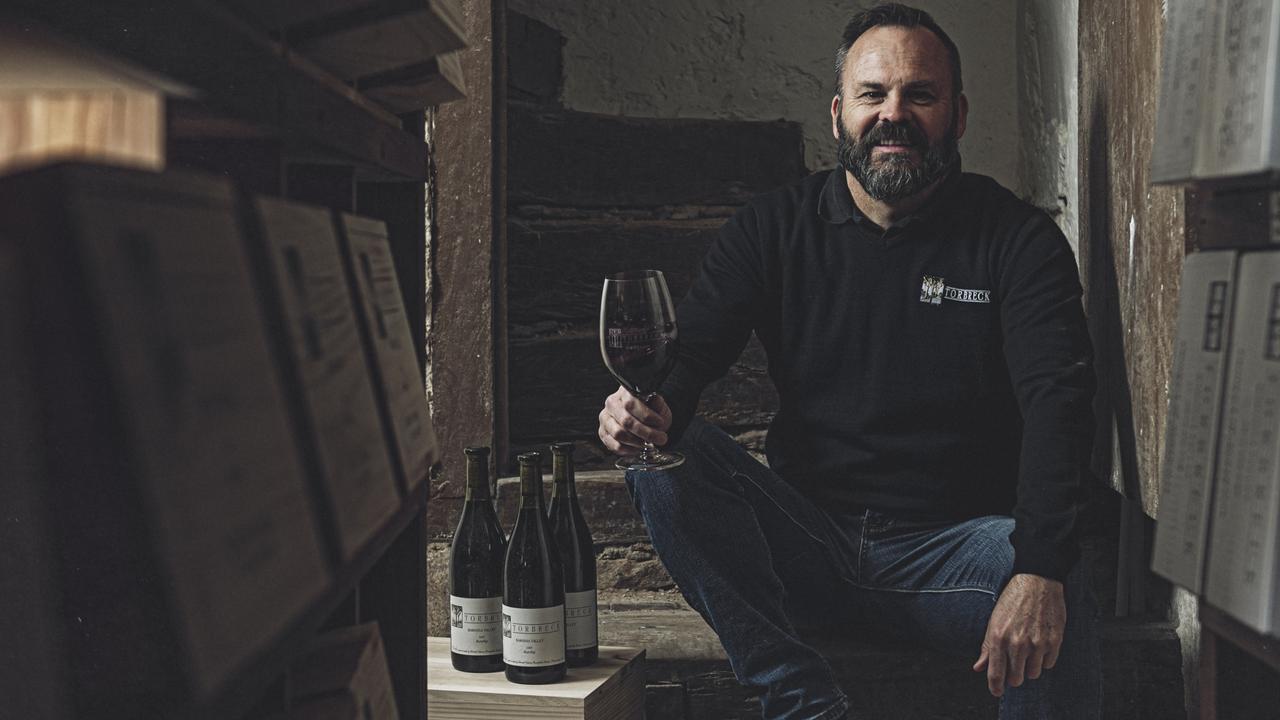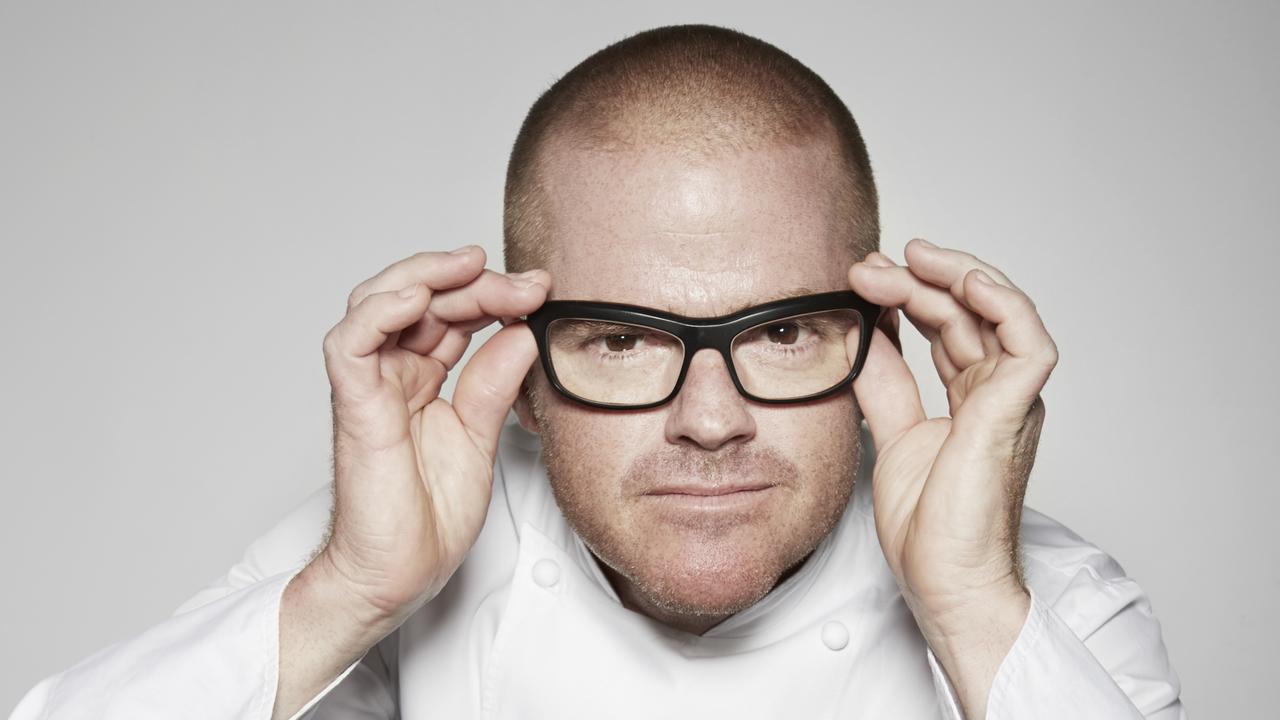From the read earth
AN Australian chef needs to get up pretty early in the morning if he wants his restaurant to be compared to the best in the world.

DUNKELD, in central Victoria, is a village of about 440 people, the sort of speck on the map where you only stop if you need petrol, or a dog runs in front of your car. But there is another, very good reason to stop here. Dunkeld is the nation's leading regional culinary destination.
The restaurant at Dunkeld’s Royal Mail Hotel, run by chef Dan Hunter, 36, has, since he took over three years ago, garnered such critical accolades that one reviewer even dubbed it Australia’s answer to Spain’s legendary el Bulli (ranked number two on the World’s 50 Best Restaurants list).
In reality, the Royal Mail may be the nearest you get to a Tetsuya-style dining experience in rural Australia. But what truly distinguishes the Royal Mail is the fact that virtually all of the produce that makes it to the plates comes from Hunter’s own gardens close to the restaurant.
Most top chefs have gardens now, but none has anything quite like Hunter’s set-up. He expanded a single kitchen garden to three, doing all the planning and sourcing of seeds himself. It was his objective from the outset to source all of the vegetable produce for his intricate dishes from either the Royal Mail’s gardens or the immediate local region.
Under a clear, sun-drenched morning sky, and with the imposing Mount Sturgeon looming over us, it’s hard to imagine a more idyllic location for a vegetable garden or a restaurant. Across the three gardens more than 150 varieties of organic and heirloom vegetables and herbs are produced, including four varieties of carrots and as many onions.
One of the more obscure items is a Japanese white strawberry, which is so delicate it can barely survive transportation. But with the proximity of the kitchen to the gardens it becomes a viable ingredient.
“Our aim here is to produce stuff that’s always better when it’s picked and served on the day,” says Hunter. “In the city you have to go to the market early in the morning, where the produce has been picked by the grower, transported to the market and then handled. But here we have a clear understanding of the produce right from the seed in the soil.”
Early each morning one of Hunter’s chefs goes to the gardens to collect the ingredients for that evening’s menu. Between 7am and 8am, the chef fills Eskies with produce and brings everything back to the kitchen where it is scrutinised by Hunter and his team.
Hunter says he loves the fact that this restaurant, unlike most others, boasts “a chef who has physically pressed his fingers into the dirt” of the plot from which the produce for that day’s seatings has been grown.
Now he’s planning to consolidate these three vegetable gardens into a single entity a short stroll from the hotel, not just to make it more efficient for the kitchen, but also as an educational tool. Guests of the Royal Mail, who usually stay two days, will be able to visit the garden, which will feature interpretive signage.
Hunter says that his gardens provide him with a better understanding of his produce. The creative process behind his dishes begins here. He says that virtually 100 per cent of "every leaf, flower and herb" that ends up on the plate at the Royal Mail comes from this series of neat plots, though there's a herb that one of the chefs regularly collects from a footpath in the nearby town of Hamilton.
There's a significant cost, in time, effort and money, in maintaining the gardens. But ultimately the investment is worth it. Hunter's wife, Julianne Bagnato, who works as the Royal Mail's sales and marketing manager, explains that it allows for greater control over each stage of the growing cycle, ensuring that produce is free from genetic modification, chemical fertilisers and pesticides.
Being collected daily as needed, the produce is allowed to ripen naturally, ensuring that "the flavour, texture and nutritional properties of the produce" are maintained by eliminating the need for refrigeration and storage. But it also means that Hunter has to think months ahead about which produce will be available and how it will affect the development of his menus.
"Yes, I have become psychologically dependent as a chef on the gardens," Hunter says. "It's super-important for the restaurant. Chefs tend to live in fluoro-boxes these days and never get outside. For me, to be out in the gardens, it's a head-clearing exercise. You can come here and be at peace with nature. I want the process to be about knowing who planted it, who picked it, who washed it, who cooked it, who served it."
During his time in Spain, Hunter also worked in the one-Michelin-star restaurant, Caelis, before eventually working his way up to head chef at Mugaritz. Earlier this year Mugaritz's star chef, Andoni Luis Aduriz, joined Hunter for a special Melbourne Food & Wine Festival event at the Royal Mail. "My experience in Spain was vitally important - for maturity in the kitchen and in developing an understanding of quality," Hunter says.
Hunter's role at Mugaritz was onerous enough, but at the Royal Mail, he is not just executive chef but also hotelier, producer and gardener. Softly spoken, ambitious and considered, Hunter impresses as the sort of person who has had greatness thrust upon him - by himself.
Would he be tempted to move to the big smoke? He says he hasn't "ruled out working in the city", but he knows he would find it difficult. For a start, it would mean relinquishing his access to the freshest produce from his own gardens virtually outside his back door.
He rightly likens Victoria to a small country in the breadth and quality of its regional restaurants and wines. He says there are plenty of restaurants in Australian towns, but not many regional destination restaurants.
"I hope that people see that if you can do what we've done in bloody Dunkeld, with a population of 500, you can do it in a town."
And he agrees that with the methods he's introduced at the Royal Mail he's probably spoilt himself for other restaurants, not to mention his team of cooks.
Despite his impressive achievements, it seems that Hunter has unfinished business at the Royal Mail. The (garden) plot thickens.


